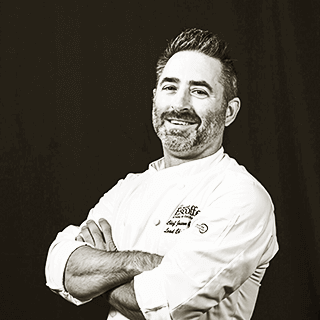Listen to This Article:
Do you enjoy planning every last detail of a big party or think that cruise ship managers have the most interesting job in the world? Or maybe you go out to eat and spot a dozen ways the restaurant can run its operation more efficiently.
If so, the hospitality industry might be calling you. Whether you’re good with spreadsheets or the first to jump into a conga line—or can work a spreadsheet while in a conga line—hospitality likely has something to offer.
Hospitality is also an industry that can be somewhat pliable, serving someone just looking for their next job as readily as the person pursuing a dream career.
And there are lots of openings: as of April 2024, the U.S. Bureau of Labor Statistics reported that there were 16.9 million people working in the Leisure and Hospitality sector, ranking it among the top employment industries in the United States.
Below are some tips that can help you break through and stand out in a hospitality career.
What Type of Hospitality Job Is Right for You?
A variety of jobs exist in the hospitality industry, each with its own unique responsibilities—meaning people from a wide range of backgrounds and personalities can likely find a niche to match.
This labor sector focuses on operations in restaurants, hotels, resorts, catering companies, hospitals, and more. Whether you want to manage a restaurant, run a nightclub, or join a catering operation, you have many jobs to choose from.
Some hospitality jobs are customer-facing while others are more behind the scenes, like those in administration or operations. You might plan menus, work in Human Resources or guest relations, or be in charge of ordering and inventory. There’s also variety in job or career focus; you can find seasonal work, entry-level positions, managerial positions, and more.
Fine-Tune Your Choices
Because the industry is wide-ranging, it might take you some time to narrow down your choice of career. To whittle down the list of potential roles, you can take stock of your personal preferences, career and educational background, and hard and soft skills. Hard skills are technical or job-specific skills that you’ve obtained through direct experience and education, while soft skills pertain to interpersonal skills and things like communication, leadership, and problem-solving.
As you evaluate your options, look at where your skills and preferences overlap with the jobs that interest you, and where you identify some gaps. Can those gaps be filled with the right training and education, and are you willing to put in the work?
If so, you might consider going to culinary school to earn a degree in Hospitality & Restaurant Operations Management. Having a specialized education for the position you want could put you above other applicants who have not completed a formal education.
Types of Jobs in the Hospitality Industry
The hospitality industry offers a multitude of interesting professions. These can include roles in:
- Bars and Restaurants
- Casinos
- Hotels and Resorts
- Cruise Ships
- Banquet Halls and Event Venues
- Nursing homes, schools, and hospitals
- Facilities and Technology Operations
- Grocery and Wholesale Clubs
- Food and Beverage Distributors
- Travel Agencies
- Spas
7 Qualifications and Skills You May Need to Work in Hospitality
Depending on the line of work you choose, the skills needed can include good communication, an understanding of financial statements and purchasing, customer psychology, and operations. You’ll certainly need good time management skills and a willingness and ability to find solutions as well. These apply whether it’s your first day working with a banquet staff or you’re running the whole catering business.
If you decide you want to make a career in hospitality, the promotion ladder is generally well-defined. Many high-level professionals started in entry-level jobs and worked their way up, but a degree from a culinary school could give you a head start or help you climb that ladder faster.
With a managerial education, you may stand out from other hopefuls. And a degree may reduce the time it takes for you to earn that first management position. At Auguste Escoffier School of Culinary Arts, students must also participate in a hands-on industry externship to graduate, giving them real-world experience to go along with their classwork.
*Information may not reflect every student’s experience. Results and outcomes may be based on several factors, such as geographical region or previous experience.
Escoffier’s coursework offers a good overview of the types of skills needed in the hospitality industry. Here’s a selection of some of those skills and courses:
1. Communication
In the hospitality industry, you need a mix of business and personal communication skills. Whether you are working with a team of chefs or face-to-face with customers and guests, excellent communication skills are a must.
Learning how to speak to people and communicate your thoughts effectively can make your job in the hospitality industry much easier. An understanding of cultural differences can be a must in the hospitality industry, as well. You may find yourself interacting with guests from around the world, whether they’re coming to you or you are traveling to their country.
2. Attention to Detail
Having a hospitality job requires you to pay close attention to detail. Everything must be exceptional for your guests. From a wrinkled pillow in a hotel room to a burnt edge of a pizza crust, your customers may notice any flaw, and they’ll expect only the best when they pay for your service.
3. Service Standards
From day one, it’s incumbent upon anyone in the hospitality industry to understand what type of professional conduct is expected of them as well as the service standards in their job or career. A bartender has a set of standards to follow, as does a wedding planner, beverage distributor, or banquet staff.
Service standards means things like hygiene and guest service or the above-mentioned communication. Escoffier’s online Hospitality & Restaurant Management degree program includes coursework on Professionalism and Service Standards and introduces students to the basics of professional conduct.
4. Event Operations
Event operations has to do with organizing and planning for large events. When you consider the number of people and the amount of details an event like a wedding, conference, or other large gathering entails, you begin to understand how many kinds of jobs and roles exist in this space.

How You Can Become an Event Planner
Step into the world of event planning and unlock the secrets to crafting unforgettable experiences. Discover how you can carve your niche in special events, curate a standout portfolio, and much more in this guide!

Large event coordinators often need specialized skills for the position.
5. Foodservice Math and Accounting
Are you good with numbers? You might excel at managerial accounting and cost control concepts.
These concepts can help in calculating expenses, revenue, income statements, and profit analysis. If you want to pursue any job or career that involves budgeting, inventory management, or event accounting, this kind of education can be critical.
6. Facilities Operation and Compliance
There are lots of behind-the-scenes details that make an establishment or event hum, which is where facilities operations and compliance come in.
This can include things like emergency plans and building and equipment maintenance. There are also details to stay on top of when it comes to local, state, and federal regulations for food and beverage spaces.
7. Business Planning
Business planning explores concepts students may need to be able to manage and lead, including business pricing, planning, credit management, government regulation, business ethics, and more.
By the end of this course, students complete and present a business plan for a food service operation.
Building Your Resume and Skills
To find job and career opportunities in the hospitality industry, you’ll put in similar legwork as in other professions: build your skills, polish your resume, network, and apply.
From expanding upon your interpersonal skills to figuring out how to balance books or line up entertainment, you can figure things out on the job, in school, or both. Obviously, we recommend attending culinary school—it can expedite the learning curve, introduce you to people in the industry, and provide you with advanced skills to start you at a higher level.
Hospitality Education
Escoffier’s online Associate of Occupational Studies in Hospitality & Restaurant Operations Management program includes classes in business and other kinds of skills you may need for a job in the industry. Curriculum topics may include menu design and management, cost control and purchasing, business and professional communications, catering and events operations, and more.
Escoffier’s 60-week online Associate Degree in Hospitality & Restaurant Operations Management is designed to help prepare students for jobs in a variety of hospitality businesses. Students must also complete a hands-on industry externship as a requirement to graduate.
The Importance of Transferable Skills
You might be surprised how many skills you have that can translate to a career in hospitality. Your background and talents likely pair well with a career here because hospitality is so wide-ranging in its possibilities.
Consider some of the skills you’d need in hospitality and where yours match or are similar:
- Time management
- Attention to detail
- Good communication
- Customer service skills
- Cultural competencies
Even if you don’t have direct experience in hospitality, you can showcase these kinds of skills when you look to make a change. Maybe you’re a middle school math teacher—your ability to multitask, communicate, and be a leader are all enviable skills, on top of your math knowledge. Maybe you run an auto repair shop—you can point to skills in budgeting, managing employees, customer service, and scheduling.
Start jotting down the skills you use in your current job or that you’ve gained in your education, and cross-reference them with those you’d need in hospitality. You might be surprised at how prepared you are.

Many hospitality jobs include customer-facing positions for which good communication skills are a must.
Acing the Job Search and Interview Process
With the right type of preparation, a job search and the accompanying interviews can be an exciting process in which you’re focused on possibilities.
Polish Your Resume
After you’ve evaluated your skill sets and maybe even added to them, it’s time to organize your resume in preparation for job-hunting. You’ll want to think about how your skills and experience match the job you’re interested in and highlight those.
Include past work experience and roles, basic responsibilities, education, any internships and externships, and contact information. Above all, remember to customize your resume for the position you seek. If you want to stand out from other applicants, one way to do so is by ensuring your resume shows some thought. A chef’s resume, for example, would highlight skills and experience that apply to a specific role at a specific restaurant; you can use those same principles in your own resume-building.
Many employers try to reduce the burden of sifting through hundreds or thousands of resumes by employing AI as a first-pass filter. These systems parse your resume based on certain formatting expectations. To ensure your resume doesn’t fall through the cracks from being parsed incorrectly by an AI interface, make sure to keep the formatting clear and simple.
For some roles, you’ll need a portfolio instead of or in addition to a resume. A culinary portfolio is more detailed and visual than a resume. In addition to your experience and contact information, it typically includes photos, an About Me section, showcased skills, and services you offer. You will likely create a digital version as well as a physical copy.
Where to Look: Beyond Job Boards
Job boards can be a good place to start your search, but they are also the place everyone heads to, so you might want to get more creative to find additional opportunities.
If you have a dream job or dream employer in mind, head straight to the source; there’s no reason you can’t head directly to a venue to find out whether they have any openings. Many company websites have a “careers” button at the bottom of the home page, which often leads to the most up-to-date information about available positions.
Even if your specific job isn’t available, a venue might have another opening that allows you to get inside and learn the inner workings as well as position yourself for a move when something does open up.
Consider niche websites as well. A quick Google search can help you find the latest and greatest sites related to your preferred focus, whether that’s boutique hotels, vegan caterers, adventure travel, hot air balloon weddings, or whatever else you dream of.
There’s also social media. Companies will often announce their job openings there, and if you’ve been following them and paying attention, you’ve already gathered background information you can use to personalize your cover letter and resume. You can also use social media to showcase your own skills and to talk about what you’re looking for. You never know when the right person will come across one of your posts!
You can also scope out Auguste Escoffier Global Solutions’ EConnect. Escoffier students can also make use of the school’s Career Services.
Network and Build Connections
Networking doesn’t need to be intimidating. It just means you get to know people and businesses in the hospitality industry and build genuine connections. You can start by getting to know your colleagues and their backgrounds and expand to include attendance at events and conferences or joining professional associations.
If you choose education, culinary school can introduce you to Instructors who are or have been active in the hospitality business, as well as alumni and fellow students who have similar interests and goals. After graduation, you can take advantage of Escoffier’s Alumni Association, which has more than 7,100 members and includes job postings and access to continuing education.
Prep For Interviews
A good interview usually comes down to good research. By researching the company and people you’ll be speaking to, you’ll be able to better answer questions about how your experience fits the role; you’ll also be better prepared to ask questions of the interviewer as well as make relevant small talk that shows you’ve paid attention.
During your interview prep, you should also practice answering questions, whether with a willing partner or alone in front of a mirror. Find out the most commonly asked questions for your type of role so you can be ready instead of flat-footed.
To Find a Job: Apply, Apply, Apply
You’ll need to take the leap at some point and apply for positions. If you’ve built a solid foundation, this should be an exciting time as you look forward to starting something new. Give it some time, but don’t be afraid to follow up if you don’t hear back after a few weeks.
When applying, you’ll tap into your communication skills, and you may also need a good resume and a culinary portfolio, depending on the job.
Starting and Growing Your Career
When you start your career in hospitality, you’ll begin by gaining practical experience that you can build upon if you decide you want to make a career out of your chosen field. That practical experience will likely be an extension of what you’ve already begun, be that the transferable skills or related job skills, or a degree or diploma…or both.
Make a good first impression by acting and dressing professionally—determined by the specific industry and company you’re a part of—by showing up on time, respecting the leaders and your co-workers in the organization, and demonstrating that you’re open to learning.
Your education continues even after you’ve landed a job; it shows up in the ways you observe and learn from others, in the ways you hone your skills, and in the ways you keep abreast of the latest trends in your industry.
You can also find a mentor to help guide your job and career decisions. This could be a peer whose skills or presence you admire; you can find them at your place of employment, at school, at a local event, or even on social media.
Or your mentorship search could be more formal. The Global Leadership Enhancement & Mentorship Network (GLEAM), is a nonprofit volunteer organization that has created a network for restaurant and foodservice industry professionals to connect. A key pillar of their network’s offerings is peer mentorship and connecting with others who are at a similar stage of their career as you or have been there in the past.
As you gain experience, you can grow your skills on the job and by taking more classes or pursuing more training and certification. Remain adaptable and open to opportunities as well as any changes within your industry.
Discover Your Potential with a Hospitality Degree
The hospitality industry is an exciting place to be, with more job and career choices than ever. It appeals to a range of personality types, a variety of personal situations and preferences, and it can offer a number of opportunities for advancement.
Escoffier’s hospitality degree is designed to give students a bird’s eye view of the industry from an employer and operator standpoint. Completed entirely online with an in-person industry externship, the program can prepare students for entry-level management over 60 weeks of coursework.
Contact us to find out more about how Escoffier can help you pursue your dream job.
IF YOU WANT TO FIND OUT MORE ABOUT THE HOSPITALITY INDUSTRY, CONSIDER THESE ARTICLES NEXT:
- How to Become a Hotel Manager
- How You Can Get a Job on a Cruise Ship
- How a Culinary Education Led Shai Fernandez to the Four Seasons
*Information may not reflect every student’s experience. Results and outcomes may be based on several factors, such as geographical region or previous experience.
This article was originally published on Dec. 4, 2020, and has since been updated.



